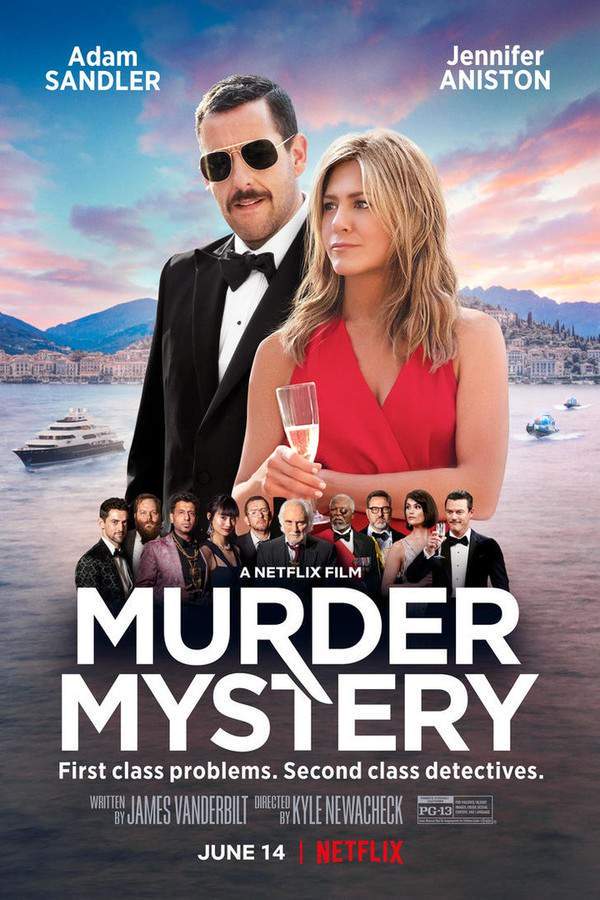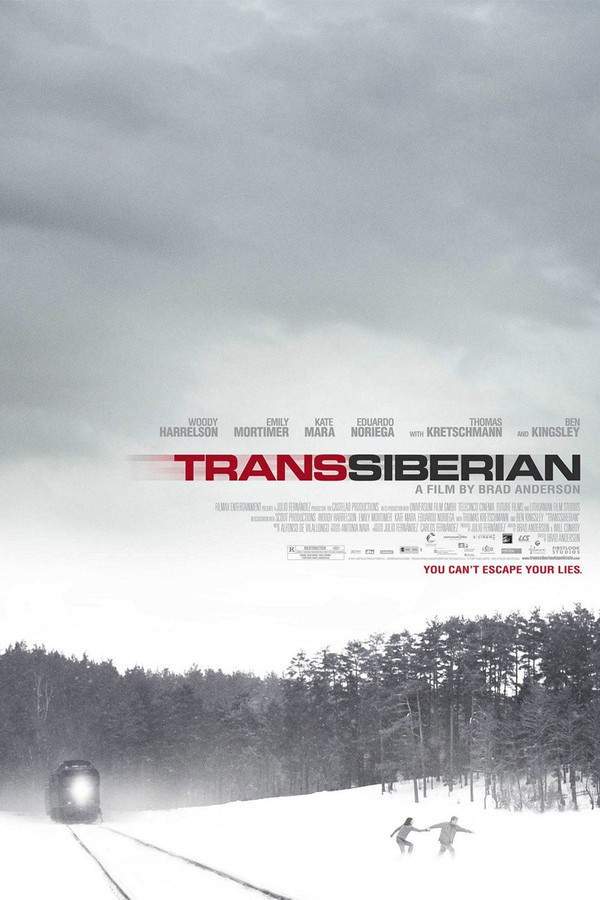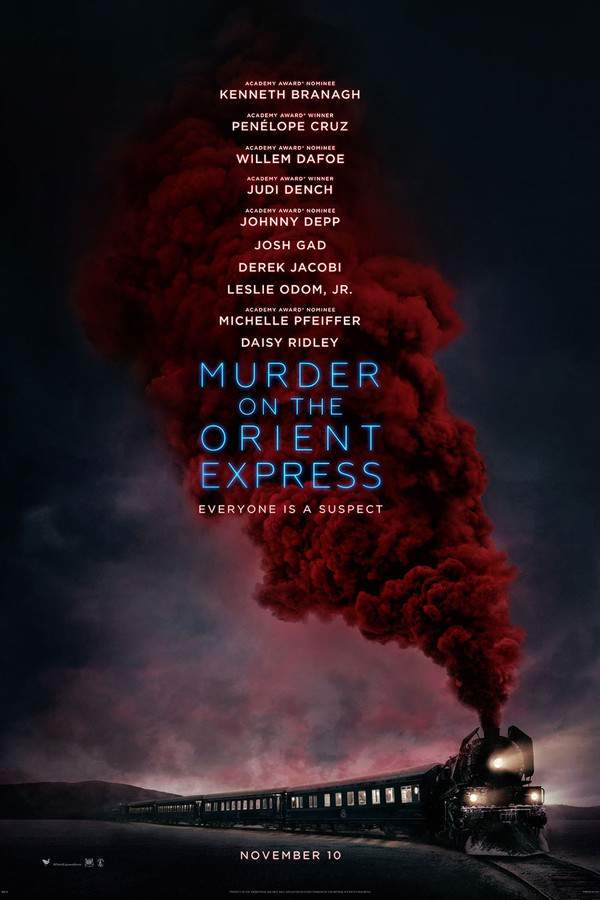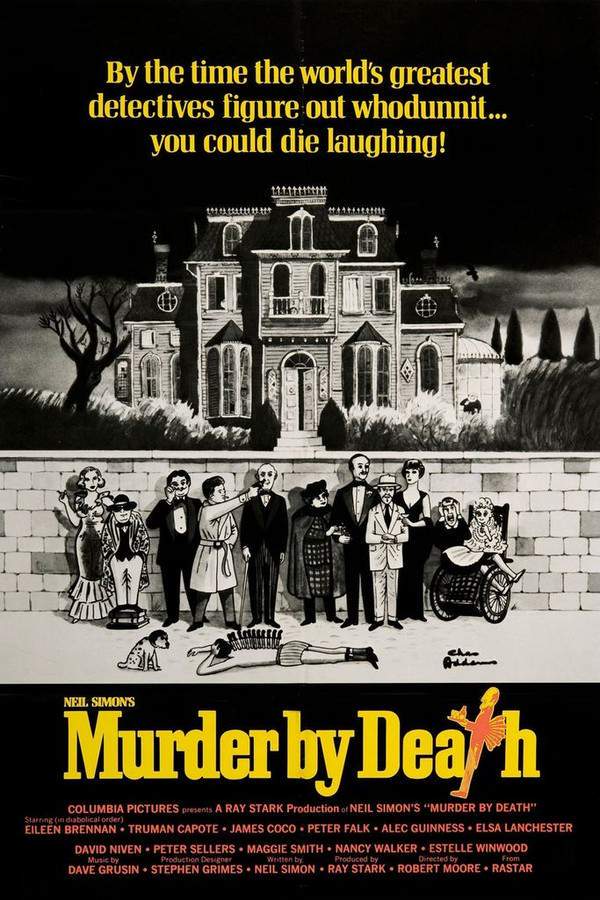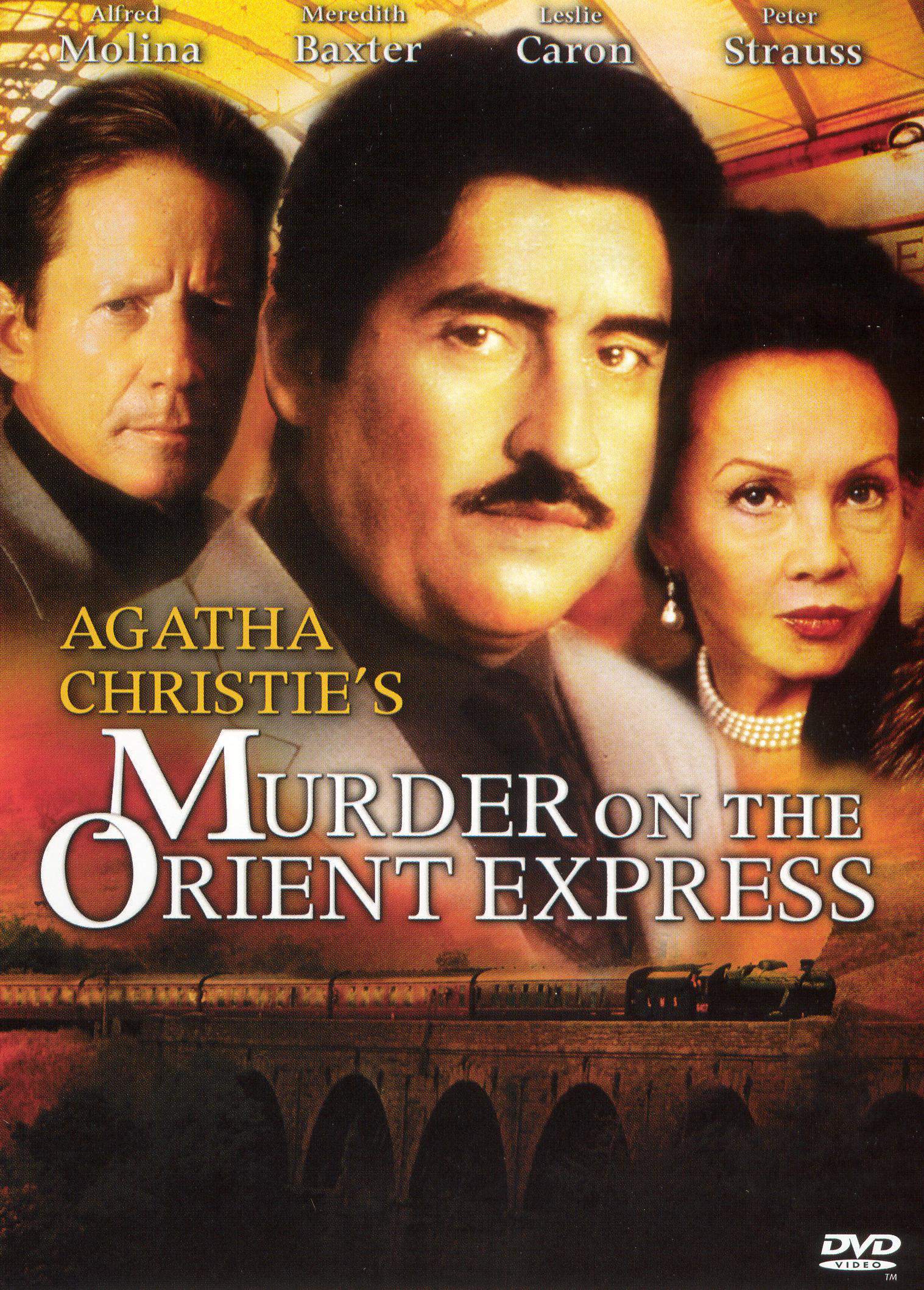
Murder on the Orient Express 1974
Directed by

Sidney Lumet
Made by
Paramount Pictures
Test your knowledge of Murder on the Orient Express with our quiz!
Murder on the Orient Express Plot Summary
Read the complete plot summary and ending explained for Murder on the Orient Express (1974). From turning points to emotional moments, uncover what really happened and why it matters.
After successfully concluding a case in the Middle East, detective Hercule Poirot (Albert Finney) sets off for England aboard the famed Orient Express. During this journey, he reunites with his friend Bianchi (Martin Balsam), who is the director of the Compagnie Internationale des Wagons-Lits, and notices that the train is unusually full for the season, with all first-class cabins booked.
Just as the train departs Istanbul, a wealthy American businessman named Ratchett ([Richard Widmark]) approaches Poirot, offering a hefty sum of $15,000 for his services, as he has been receiving death threats. However, Poirot dismisses the case as uninteresting and declines the offer. As night falls, the train becomes ensnared in a fierce snowstorm in the Balkans. The following morning, the shocking news emerges: Ratchett has been found brutally killed in his cabin.
Determined to uncover the truth, Poirot, alongside Bianchi, enlists the help of Dr. Constantine ([George Coulouris]), a Greek doctor traveling unnoticed in another coach, along with Pierre Michel ([Jean-Pierre Cassel]), the middle-aged French conductor who is also among the suspects but aids in the investigation. As they delve deeper, Poirot uncovers a shocking revelation: Ratchett was not who he seemed; in reality, he was a notorious gangster named Cassetti who had a dark past involving the kidnapping and murder of a young girl named Daisy Armstrong.
An examination by Dr. Constantine indicates that Ratchett had been stabbed twelve times, with evidence suggesting that the murder occurred around 1:15 a.m. while the train was trapped in snow. With the other train compartments locked and no footprints in the snow, it quickly becomes apparent that the murderer is likely still present among the passengers.
As Poirot investigates further, he discovers that all the passengers have ties to the Armstrong family, each harboring motives for revenge due to the tragic aftermath of Daisy’s murder. The suspects include:
- Hector McQueen ([Anthony Perkins]), Ratchett’s secretary;
- Edward Beddoes ([Sir John Gielgud]), his British valet;
- Mary Debenham ([Vanessa Redgrave]), a British teacher returning from Baghdad;
- Colonel Arbuthnott ([Sean Connery]), an officer in the British Indian Army;
- Princess Natalia Dragomiroff ([Wendy Hiller]), an elderly Russian royal;
- Hildegarde Schmidt ([Rachel Roberts]), the Princess’s maid;
- Count Rudolf Andrenyi ([Michael York]), a Hungarian diplomat;
- Countess Elena Andrenyi ([Jacqueline Bisset]), his wife;
- Greta Ohlsson ([Ingrid Bergman]), a Swedish missionary;
- Mrs. Harriet Belinda Hubbard ([Lauren Bacall]), a talkative American socialite;
- Antonio Gino Foscarelli ([Denis Quilley]), an Italian car salesman;
- Cyrus B. “Dick” Hardman ([Colin Blakely]), a detective masquerading as a talent agent;
- Pierre-Paul Michel ([Jean-Pierre Cassel]), the conductor of the sleeping car.
As Poirot interrogates each suspect, he uncovers painful connections to the Armstrong tragedy. It becomes clear that several of them had personal stakes in the revenge against Cassetti for the havoc he caused in their lives. Eventually, Poirot reveals that Cassetti had been sedated by Beddoes and McQueen, allowing all present to take turns delivering the fatal wounds.
However, Poirot presents two theories to the remaining passengers: the complex murder in which each suspect played a role, and a simpler explanation involving a potential intruder. He suggests that Cassetti may have been embroiled in a Mafia feud, leading to his demise. Bianchi chooses the less complex explanation for the local police, deeming that Cassetti ultimately got what he deserved. Poirot grapples with his conscience but finds solace in the belief that justice has been served.
Murder on the Orient Express Timeline
Follow the complete movie timeline of Murder on the Orient Express (1974) with every major event in chronological order. Great for understanding complex plots and story progression.
Poirot Embarks on the Orient Express
Detective Hercule Poirot boards the luxurious Orient Express after completing a case in the Middle East. Unbeknownst to him, this journey will soon turn tumultuous with a shocking turn of events.
Meeting Bianchi
As Poirot settles in, he reunites with his friend Bianchi, the director of the Compagnie Internationale des Wagons-Lits. They chat about the train's unusually full passenger list, sparking Poirot's curiosity.
Ratchett's Proposition
Wealthy American businessman Ratchett approaches Poirot with a lucrative offer for his protection services, citing death threats he has received. Poirot, finding the case uninteresting, politely declines.
Snowstorm Strikes
As the train departure progresses, a fierce snowstorm engulfs the Balkans, causing the Orient Express to become stuck. This severe weather sets the stage for the ensuing mystery.
The Murder of Ratchett
The next day, the train passengers are rocked by the discovery of Ratchett's lifeless body, discovered brutally murdered in his cabin. A cold realization dawns: the murderer is likely amongst them.
Investigation Begins
Determined to unlock the truth about Ratchett's death, Poirot enlists the help of Dr. Constantine, a discreet Greek doctor on the train. Together, they begin to piece together the clues surrounding the murder.
The Truth About Ratchett
Poirot discovers that Ratchett was actually a notorious gangster named Cassetti, linked to the heart-wrenching tragedy of the Armstrong family. This revelation adds layers to the investigation.
Suspects and Motives Unveiled
As Poirot interrogates the passengers, he uncovers their connections to the Armstrong family, each having personal motives for wanting Cassetti dead. The list of suspects grows, complicating the case.
The Stabbing Evidence
Dr. Constantine's examination indicates Ratchett had been stabbed twelve times, confirming the brutal nature of the murder. The evidence points to a calculated act, further deepening the mystery.
The Conductor's Role Revealed
The middle-aged French conductor, Pierre Michel, originally a suspect, becomes a crucial ally, providing insights that guide Poirot through the investigation. He plays a vital role in attempting to uncover the truth.
Collaboration of Suspects
Poirot reveals a shocking twist: several passengers had sedated Cassetti, allowing each one to inflict a fatal wound. This cooperative murder scheme raises questions about justice and morality.
Poirot's Dual Theories
Poirot presents two potential explanations for the murder: the intricate plot involving all the suspects or the simpler theory of an intruder. He grapples with the implications of both scenarios.
Bianchi's Decision
Bianchi chooses to report a less complex narrative to the local police regarding Cassetti's murder. He decides that the gangster's dark past justifies his violent end, leaving Poirot to ponder ethical dilemmas.
Justice Served?
As the truth unfolds, Poirot reflects on the nature of justice. He finds some comfort in the belief that the scales have been balanced for the Armstrong family, debating morality against revenge.
Murder on the Orient Express Characters
Explore all characters from Murder on the Orient Express (1974). Get detailed profiles with their roles, arcs, and key relationships explained.
Hercule Poirot (Albert Finney)
Hercule Poirot is a meticulous detective known for his exceptional observation skills and logical reasoning. His character embodies the struggle between adhering to the law and seeking personal justice, leading him to confront the moral complexities of the case. Poirot's charm and intellect shine as he navigates the tensions aboard the train.
Colonel Arbuthnott (Sean Connery)
Colonel Arbuthnott is a soldier in the British Indian Army with a keen sense of honor. His strong demeanor hides a complex emotional side stemming from his connection to the Armstrong family tragedy. Arbuthnott's position allows him to navigate the layers of suspicion while revealing the depth of human emotion at play.
Mary Debenham (Vanessa Redgrave)
Mary Debenham is a British schoolteacher whose calm exterior conceals a fierce determination and intelligence. Her interactions often hint at a deeper understanding of the situation, making her a key figure in the unfolding drama. As a potential suspect, she embodies the film's theme of hidden motives and personal loss.
Greta Ohlsson (Ingrid Bergman)
Greta Ohlsson is a Swedish missionary, characterized by her compassion and emotional depth. As one of the passengers connected to the Armstrong case, her character grapples with the themes of justice and forgiveness. Ohlsson's presence enriches the narrative with her perspective on suffering and morality.
Murder on the Orient Express Settings
Learn where and when Murder on the Orient Express (1974) takes place. Explore the film’s settings, era, and how they shape the narrative.
Time period
The film is set in the early 20th century, a time when train travel was a symbol of luxury and sophistication. The social dynamics of the time reflect the influences of class and privilege, as well as the moral complexities surrounding justice and revenge, particularly in a post-war context.
Location
Orient Express, Istanbul, Balkans
The Orient Express is a luxurious international train that has become synonymous with intrigue and adventure. Istanbul, where the journey begins, is known for its rich history and cultural blend of East and West. The Balkans, known for their rugged landscapes and turbulent history, play a critical role as the train becomes ensnared in a snowstorm, creating a setting ripe for suspense.
Murder on the Orient Express Themes
Discover the main themes in Murder on the Orient Express (1974). Analyze the deeper meanings, emotional layers, and social commentary behind the film.
⚖️
Justice
The theme of justice runs throughout the narrative as Poirot grapples with the morality of his findings. The movie explores whether true justice can ever be served and questions the ethical implications of revenge. Ultimately, it presents a complex moral dilemma where the lines between right and wrong blur.
🕵️♂️
Mystery
Mystery is at the heart of the film, with a classic locked-room scenario unfolding as Poirot investigates the murder. The web of secrets and interconnected backstories of the passengers adds layers of intrigue. Each character’s motives are key to unraveling the intricate plot, making the journey an engaging puzzle.
💔
Revenge
The quest for revenge ties the characters together, united by their tragic loss due to Ratchett/Cassetti’s actions. The narrative emphasizes personal vendettas and the pain stemming from past tragedies, portraying how grief can lead to moral ambiguity. Ultimately, it raises questions about the price of vengeance.

Coming soon on iOS and Android
The Plot Explained Mobile App
From blockbusters to hidden gems — dive into movie stories anytime, anywhere. Save your favorites, discover plots faster, and never miss a twist again.
Sign up to be the first to know when we launch. Your email stays private — always.
Murder on the Orient Express Spoiler-Free Summary
Discover the spoiler-free summary of Murder on the Orient Express (1974). Get a concise overview without any spoilers.
The legendary carriages of the Orient Express glide through snow‑capped landscapes, a moving world of polished wood, plush upholstery and whispered conversations. Each compartment holds a slice of 1930s elegance, where the clink of crystal glasses competes with the howling wind outside. The train’s slow, deliberate pace creates a sense of timeless isolation, turning the journey itself into a stage where every passenger becomes both audience and performer in a story that feels as much about atmosphere as it is about intrigue.
At the heart of this confined universe sits the fastidious Belgian detective Hercule Poirot. Renowned for his immaculate moustache, sharp intellect and an almost obsessive attention to detail, he travels incognito, observing the subtle gestures and off‑hand remarks that betray deeper truths. Poirot’s reputation precedes him, and even the most genteel travelers cannot help but sense that his presence turns a simple ride into a meticulous examination of character.
Among the glittering crowd is the affable director of the Compagnie Internationale des Wagons‑Lits, Bianchi, whose friendly rapport with Poirot offers a glimpse into the inner workings of the rail empire. A discreet Greek doctor, a seasoned French conductor, and a host of aristocrats, diplomats, artists and socialites populate the carriages, each carrying a carefully guarded secret. Their polished exteriors hint at hidden motives, creating a tapestry of intersecting lives that promises both cooperation and clash.
The film exudes the classic whodunit mood—a blend of genteel sophistication and mounting tension—where clues surface in polite conversations and revelations lurk behind every polished veneer. As the train races toward its destination, the atmosphere tightens, inviting viewers to join Poirot’s mental dance of deduction, where every glance and whispered word may hold the key to unraveling the mystery that lies just beyond the next bend.
Can’t find your movie? Request a summary here.
Movies with Similar Twists and Themes
Uncover films that echo the narrative beats, emotional arcs, or dramatic twists of the one you're exploring. These recommendations are handpicked based on story depth, thematic resonance, and spoiler-worthy moments — perfect for fans who crave more of the same intrigue.
Featured on this page

What's After the Movie?
Not sure whether to stay after the credits? Find out!
Explore Our Movie Platform
New Movie Releases (2025)
Famous Movie Actors
Top Film Production Studios
Movie Plot Summaries & Endings
Major Movie Awards & Winners
Best Concert Films & Music Documentaries
Movie Collections and Curated Lists
© 2025 What's After the Movie. All rights reserved.

